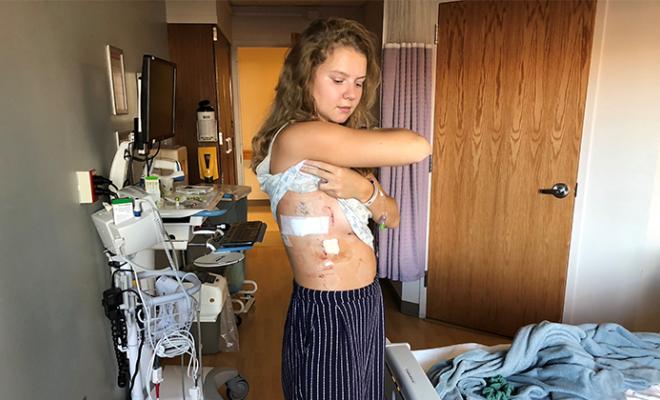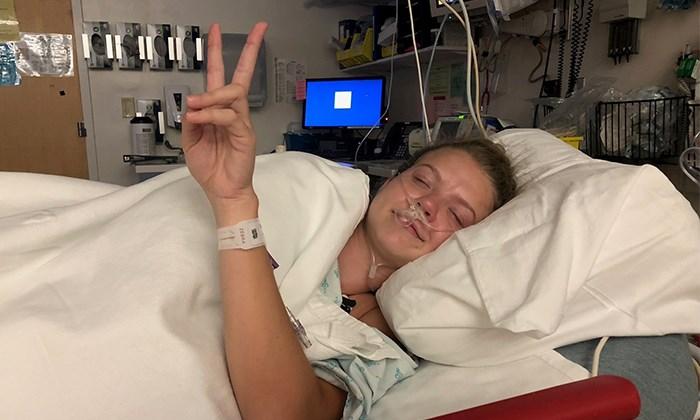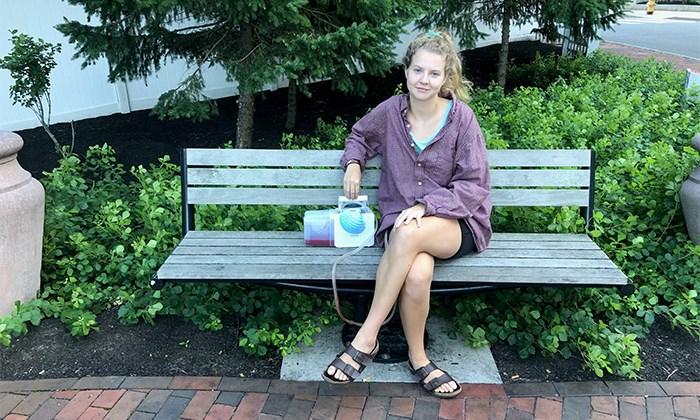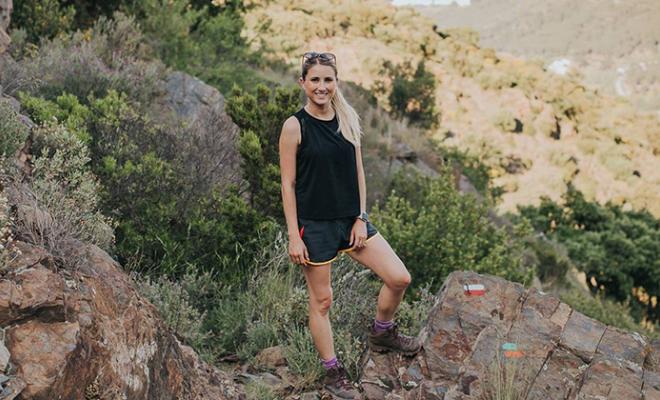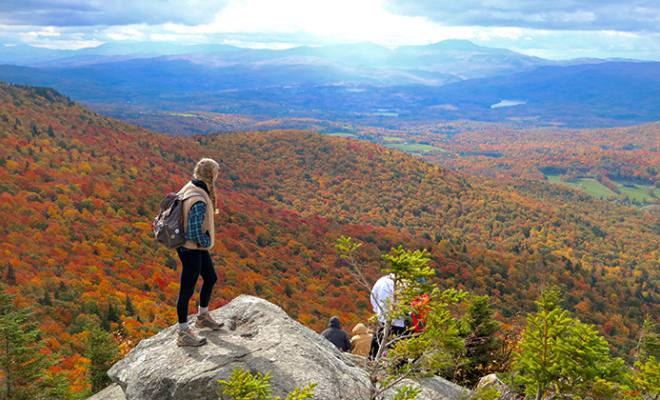I knew I had lousy lungs, but I never expected them to blow out like a tire on the highway. Before 2015, a pneumothorax (collapsed lung) was not in my medical vocabulary and I associated it only with action movies and the Discovery Health Channel, not with me or cystic fibrosis. I am now far too familiar with the signs, treatments, and recovery stages of a spontaneous lung collapse -- I might even call myself an expert.
In 2015, I was a senior in high school when my left lung spontaneously collapsed, and I was vividly reminded that life is unpredictable. Fast forward to this summer (a rising senior in college) and my body reminds me, once again, that the unexpected can happen. This time it was my right lung that gave out, randomly, or as my doctor said, “dropped.” Both experiences were complicated and resulted in two-week hospital stays, many chest tubes, and required lung surgery to stop the air leak.
Before my first one, I knew absolutely nothing about pneumothoraces, or their relationship with CF, and that is why I was so afraid when it happened. I did not even know what the symptoms of a collapsed lung were. Was it the sudden inability to breathe? Nope! I could still breathe, walk, and talk when one lung was collapsed. I felt chest discomfort, tightness, shortness of breath, shoulder pain, and exhaustion -- symptoms that I had experienced before with CF, but not all at once.
In 2015, it took me a few hours of feeling weird before I called my doctor who told me to go to the emergency room (ER) for an X-ray.
This summer, I ended up working an entire shift before realizing something was seriously wrong and telling my doctor I needed a chest X-ray. Those experiences taught me the importance of listening to my body and not ignoring the warning signs. If something feels wrong, something probably is wrong.
I later learned that CF did not cause the collapses directly. They were caused by a pulmonary bleb rupturing. Blebs are small air blisters that can develop on the lung's surface -- anyone can develop them! Although CF does not cause them, it is thought to provoke them because of the constant inflammation and irritation of the lung tissue. A bleb can pop randomly, leaving a hole in the lung lining -- yikes! This is what happened to me, twice.
Because a thoracic surgeon repaired my pneumothorax, I was sent to the thoracic floor of the hospital to recover. I had to be my biggest advocate there as the nurses and doctors, who did not specialize in CF, were making decisions about me and my lungs.
This was difficult when I was on pain meds and wanted to sleep all day, but I used my best judgment and challenged the doctors' orders if they seemed wrong. CF lungs are not regular lungs. They often need extra attention or care. In my experience, the standard procedure is not always the right procedure for people with CF.
The two lung collapses were very low points in my 21-year life, mainly because of the uncertainty and fear I felt. The immobility and constant pain I dealt with was a nightmare at the time but left me with a lasting appreciation of my healthier days. It's funny how hardship can lead to a new, uplifting perspective. If nothing else, at least now I have matching scars on both sides!
Join the conversation on Facebook.

